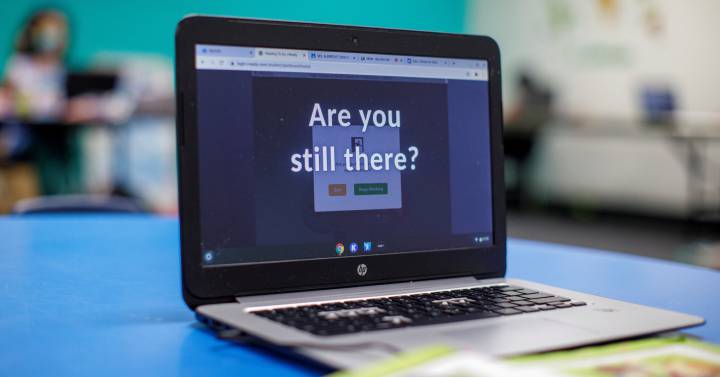The closure of schools brought in Europe the introduction of distance learning through the internet, also television and even radio. Although European countries introduced distance education as an emergency measure in the face of the pandemic, it is true that it is part of a trend of digital transformation of learning in children. But it does not seem that European families are entirely satisfied with the system, according to the second installment of the online survey. Life, work and Covid-19, carried out by Eurofound, the European Foundation for the Improvement of Living and Working Conditions, and whose conclusions have recently been known. Low quality is the main obstacle.
The results suggest that the process of digitization of education is, at least, improvable. The majority of respondents whose children took online classes during 2020 have not been satisfied with its quality, did not find it a positive experience and would not be willing to maintain it in the future. Faced with these results, the survey shows that, according to Europeans, working from home during the pandemic is a beneficial experience for most citizens.
According to the conclusions of the study, made from 59% of the respondents are against (25%) or very against (34%) of continuing with online teaching when the pandemic ends. In front of that majority, only 23% would be in favor or very in favor of continuing with distance classes.
European families consider that, in general, the experience of receiving classes remotely has not been beneficial either for the children (55%) or for the parents or guardians (59%).
Most families do not consider the lack of equipment as one of the main problems. In fact, 63% think that their home is or has been able to equip itself to receive distance learning. Of course, there is still 25% who believe that they would need more infrastructure to be able to follow the classes remotely.
The problem does not seem to lie in the lack of support either, since 67% consider that the materials and instructions received are adequate or very adequate and 55% have judged the indications received by the teachers in writing to be correct. More problematic has been the live monitoring, according to the families, since 62% do not believe that it has been up to the task, compared to 39% who think that it has been satisfactory.
Despite the fact that families see enough support, the report confirms the excessive responsibility that this type of teaching has implied for families. In those with children up to 12 years old, the adults in charge have had to dedicate an average of 49 hours a week to education, that is, almost 10 hours a day, if only the school week is taken into account, from Monday to Friday. In single parents, women have had to dedicate 77 hours a week to educational tasks. Spain, with 49 hours a week allocated as an average, is in the European average.
Difficulties in elementary school
The trend towards online education has accelerated with the Covid crisis, but it is not new. The report states that already in 2019 almost all Member States had adopted specific digital education strategies in primary and secondary education, and only six did not have a defined roadmap in this regard.
According to the working document of the Commission services on the Digital Education Action Plan 2021-2027, the use of distance learning increased notably at all levels of education as a result of the pandemic, but particularly in children, primary school and high school.
At the same time, the level of satisfaction with respect to the effectiveness of the measures taken to ensure the continuity of education and training was lower in the early stages, infantile and primary, than in other higher levels, such as secondary. The survey shows a similar pattern of both use and satisfaction by country.
Proposals to improve distance education
- System monitoring. Eurofound’s report outlines in a very generic way some improvements that could be implemented in the use of remote tools in education. In the first place, it proposes a more specific monitoring by the educational authorities regarding the use and accessibility of these systems, so that the gaps between students or groups with better and less access can be addressed and their effectiveness improved.
- Relationship of the educational community. Greater communication with teachers, students and tutors is also proposed to allow a more fluid system of exchange of experiences in the educational community.
- Continuous assessment. The document proposes to conduct follow-up exams and other assessments on the level of learning.
- Digital divide. The pandemic has contributed to widening the educational gaps between different European socio-economic groups. This is a consequence of differences in access to technology at home as a result of the closure of schools and early childhood education centers. The quality of this type of online teaching has not been considered sufficient by families.
–
–
– .

